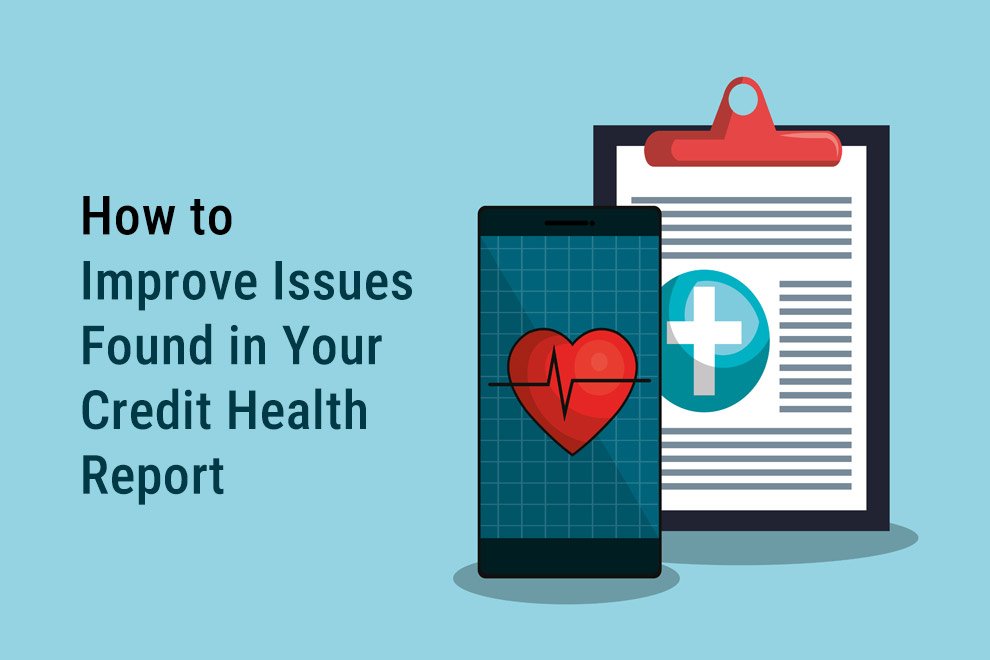Your financial well-being is closely tied to how lenders view your past borrowing and repayment habits. A single missed payment, frequent credit applications, or high balances can all leave a lasting impact on how easily you access loans or favorable interest rates in the future.
Understanding these financial patterns is the first step toward improving them. A detailed financial record highlights both your strengths and the areas that need attention, helping you take control of your future opportunities.
This is exactly what a credit health report provides. Keep reading to learn how to address common issues found in your report and take practical steps to strengthen your creditworthiness.
Understanding Your Credit Health Report
A credit health report is a comprehensive record of your financial behavior that reflects how responsibly you manage credit. Lenders rely on this report to determine your trustworthiness before approving loans, credit cards, or other forms of borrowing.
It serves as a snapshot of your overall financial health, showing both strengths and areas that may need improvement. The report typically includes:
- Personal Details: Your name, address, and identification information.
- Credit Accounts: A list of active and closed credit cards and loans.
- Payment History: Records of on-time and missed payments across accounts.
- Credit Utilization Ratio: The percentage of available credit you are currently using.
- Credit Inquiries: A log of lenders who have reviewed your report.
- Public Records and Collections: Information on bankruptcies, charge-offs, or accounts turned over to collections.
By reviewing this information regularly, you can detect errors, recognize financial weaknesses, and make smarter money decisions. To begin, it’s essential to check your credit score alongside your full report so you clearly understand where you stand.
Why Checking Your Credit Score Matters
Regularly reviewing your credit health report and taking time to check your credit score keeps you in control. Without monitoring, small issues can turn into major obstacles. With monitoring, you catch problems early, improve your financial habits, and prepare for future opportunities such as homeownership, business loans, or better credit card offers. Think of it like regular health check-ups: prevention is always better than a cure.
Common Issues in a Credit Health Report
When you review your report, you may notice one or more of these issues. Each of these can lower your score, but each can also be corrected with consistent action. Let’s go step by step.
- Late or Missed Payments
The way you handle payments carries significant weight in your credit score. Even one overdue payment can hurt your credit health report for years.
How to fix it:
- Catch up Quickly: Make overdue payments immediately. The longer you delay, the worse the impact.
- Set Reminders or Autopay: Automating payments ensures you never miss due dates again.
- Negotiate with Lenders: If you have a good record otherwise, some lenders may agree to remove a one-time late payment.
Consistency is key here. A solid record of on-time payments will eventually outweigh past mistakes.
- High Credit Utilization
Credit utilization is the percentage of your available credit you are currently using. A utilization rate above 30% signals risk to lenders.
How to fix it:
- Pay Down Balances: Reducing outstanding amounts immediately lowers utilization.
- Request a Credit Limit Increase: With the same spending but a higher limit, your ratio drops.
- Spread Out Expenses: Use multiple cards instead of maxing out one account.
When you check your credit score after reducing utilization, you’ll likely notice a faster improvement compared to other factors.
- Too Many Hard Inquiries
Every time you apply for credit, lenders pull your report, which creates a hard inquiry. Too many inquiries in a short time make you look desperate for credit.
How to fix it:
- Limit Applications: Apply only for the credit you genuinely need.
- Rate Shop Wisely: Auto loan inquiries within a short window (usually 30-45 days) count as one inquiry.
- Wait it Out: Inquiries fade over time and generally stop impacting your score after 12 months.
- Errors or Incorrect Entries
Mistakes happen. You may find accounts that don’t belong to you, incorrect balances, or payments marked late when they weren’t.
How to fix it:
- File a Dispute: Contact the credit bureau with relevant evidence like bank statements, receipts, or account records.
- Follow Up With Creditors: Sometimes the lender needs to correct the information directly.
- Monitor Regularly: Check your credit health report at least once a year to catch errors early.
Correcting inaccuracies can quickly raise your score and prevent unnecessary financial setbacks.
- Accounts in Collections
If unpaid bills are sent to collections, they appear as serious red flags on your report.
How to fix it:
- Negotiate Repayment: Some collection agencies will accept a lump sum or reduced settlement.
- Request a Pay-for-delete: Ask the agency to remove the entry once payment is made.
- Build Positive History: Even with collections, maintaining consistent good habits will gradually improve your profile.
- Short or Limited Credit History
Having little to no credit history can be as challenging as having negative marks. Lenders cannot gauge your reliability without data.
How to fix it:
- Open a Secured Credit Card: These cards require a deposit but help build history.
- Become an Authorized User: A trusted family member can add you to their card, boosting your record.
- Take Small Loans: Personal or credit-builder loans create repayment history when handled responsibly.
Take Charge of Your Credit Health
Improving the issues in your credit health report takes time, consistency, and awareness. By correcting errors, lowering utilization, and maintaining timely payments, you can steadily strengthen your financial profile.
Regular monitoring helps you stay in control and prepares you for better credit opportunities. The key is to treat your report as a guide rather than a setback, focusing on progress with every step.
For those who want support, trusted platforms like Olyv provide reliable tools to check scores and track improvements. They make a better credit health more accessible and achievable for everyone.










